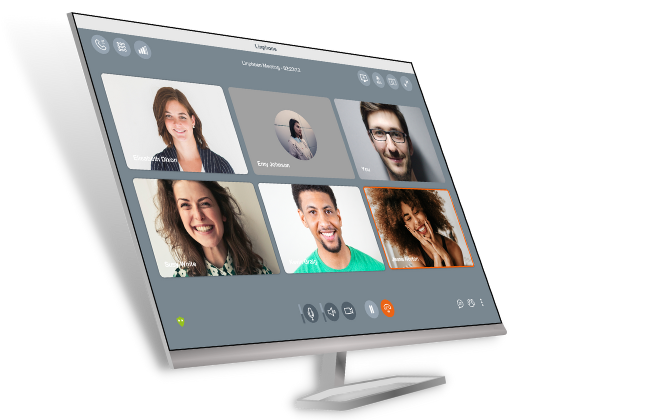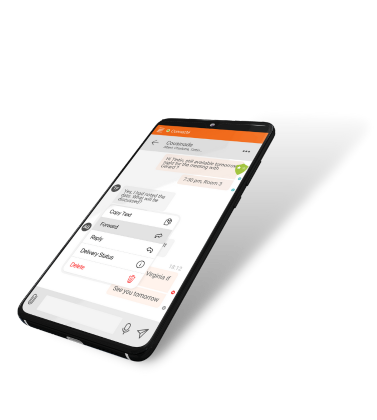With COVID-19 continuing to impact people and countries around the world, we are really focused on ensuring we continue to deliver a reliable, high-quality experience for all of our users, customers, prospects – everybody that is relying on us. In this context, we are glad to share with you today Beta versions of our upcoming new release of the open source Linphone desktop application, available for GNU/Linux, Windows desktop and macOS.
We have recently received many requests from people wishing to use the desktop version of Linphone, especially for home office. Indeed, Linphone for Desktop offers many features that allow efficient professional communication: audio and video calls in HD, audio conferences, instant messaging with file sharing capabability, display of contacts presence or status, and end-to-end encrypted calls.
We are continuously working on improving our software and will soon release a new Linphone desktop 4.2 version, which will bring important improvements in terms of audio and video quality, especially since it will be the first Linphone desktop version to benefit from our innovative RTP jitter buffer and adaptive bit rate control algorithms. This new version will also bring new features but we will reveal more about them when it is released.
The official release for this 4.2 version is scheduled at the end of April, but we know that many users already need to be able to test it, especially for our Linux users since we no longer support the Flatpak build, so we have decided to share with them a Beta version of Linphone 4.2 for desktop from now on.
For GNU/Linux users, we now distribute an AppImage package that should run on most distributions. Simply grant execution permission to the package you've download, double click and that's it, you have Linphone running within your favourite GNU/Linux distribution !
The previous Flatpak procedure, that suffered from its complexity, is no longer maintained.
In order to be able to benefit from all Linphone's features and in particular instant messaging or HD codecs such as Opus, the user can create a free SIP account from the application's Account assistant. For those who prefer to use their existing SIP infrastructure, this is also possible, which can be a good option for people who want to use a PSTN gateway.
In addition to being a free application that can be used by companies to manage their internal communications, we also offer customization or development services for those who would like to develop their own desktop softphone. In fact, many of our features are financed by our customers, and each time we develop it in Linphone directly, so that all our customers can benefit from all features. This is a cornerstone of our development model.
Finally, we hope that by providing you with early access to this new beta version will help you during these challenging times. By providing us with your valuable feedback, you will help us improve Linphone’s features and functionality.
Together we can build the future of Linphone.
The latest versions to download:
Windows: https://www.linphone.org/snapshots/windows/app/Linphone-4.2.0-alpha.55+08b62fbf-win32.exe
Linux: https://www.linphone.org/snapshots/AppImages/Linphone-4.2.0-alpha.55+08b62fb.AppImage
macOS: https://www.linphone.org/snapshots/macosx/app/Linphone-4.2.0-alpha.55+08b62fbf-mac.dmg
The pre-compiled packages of the Linphone Desktop beta versions are now available in the snapshot folders below:
Windows: https://www.linphone.org/snapshots/windows/app/
Linux: https://www.linphone.org/snapshots/AppImages/
macOS: https://www.linphone.org/snapshots/macosx/app/
To report issues and bugs, please open a ticket on GitHub: https://github.com/BelledonneCommunications/linphone-desktop



